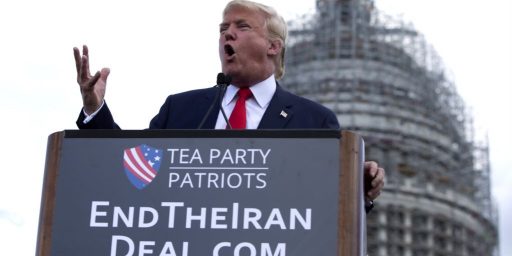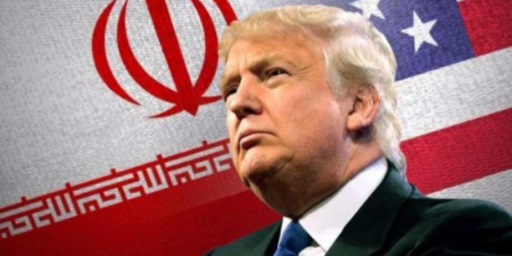Intensifying Democracy Promotion in Iran
According to a very informative report from the Los Angeles Times, the State Department is in the process of determining the best way to aid Iranian reformers. Several points stand out. First, in noting that this initiative is backed by the White House, proponents take shots at the old diplomatic guard:
The approach would represent a change since President Bush’s first term, when the administration was more wary of such potentially dangerous moves, officials said.
“We can now be much more aggressive [about Iran] than we had been,” a senior official said, hailing the arrival of Condoleezza Rice at the State Department as invigorating the president’s push for democracy.
“The guys at the State Department were too afraid to try anything during the first term,” the official said, speaking on condition of anonymity. “They were extremely cautious about angering the regime in Tehran.”
Read: Colin Powell was weak.
Second, though top officials would never publicly admit it, there is a policy shift away from exile assistance:
Despite disagreements on other aspects of the effort, the U.S. officials involved in the process support funding activists inside Iran as opposed to Iranian exiles. They hope to avoid a scenario similar to what many see as the U.S. mistake of backing Iraqi exile Ahmad Chalabi, who is believed to have fed U.S. intelligence false information about Iraqi weapons programs and is now accused of aiding Iran’s intelligence services.
As for the actual policy proposals, I’m still undecided about the best course of action. Increased funding for Voice of America’s Persian broadcasts is good but likely to have limited impact. A $3 million conference of Iranian dissidents, human rights activists, and other interested parties — a suggestion by Sam Brownback — probably won’t accomplish very much. Indeed, it’s bound to provoke the regime into cracking down on subversives. The same might also be said about some ideas to provide indirect funding for political parties and labor groups.
So let me open this topic up for discussion: How should we assist pro-democracy elements in Iran? Should we even be more active in the first place?






1. The case of human rights. It’s not enough to have a UN resolution once in a while. How can the “United Nations” let the mullahs do what they do to their own people. How is this possible?
Need to publicize the plight of iranians on a daily basis with pictures of atrocities by major media outlets. People have not seen these?
http://www.holycrime.com/CrimeTortur7.asp
2. Have the dissident clerics such as ayatollah Hossein Ali Montazeri go to NAJAF and tell the iraquis about theocracy.
3. Move “Qom” to “Najaf”
4. People in Iran are thirsty for real news. all they hear is the propaganda of the regime. Let them know what really happened in Ukrain, Lebanon: PUBLICIZE “people Power”
One more thing:
Let people know HOW MUCH MONEY THE MULLAHS HAVE in their bank accounts!!!
“How should we assist pro-democracy elements in Iran? Should we even be more active in the first place?”
Offers of “assistance” from the US are likely to be looked upon with skepticism by many dissidents in Iran–mostly due to the US’s sorry history there (e.g. the US-engineered overthrow of Mossadegh and years of support of the Shah). Simply put–US relations with the country have historically and consistently undermined democracy. We would need to proceed very cautiously to convince Iranians that there has been an honest change in US interests.
One way to do this is to embrace prominent Iranian secularists. Unfortunately, the US government has not done this in a satisfactory fashion. Denying visas for prominent secular artists and intellectuals like Abbas Kiarostami or Bahman Ghobadi to travel to the US is extremely stupid. Similarly the Treasury Department’s attempts to shut down academic cooperation between US and Iranian scholars does nothing but breed resentment in Iran to the US. Openness and interaction is needed to build these relationships with those elements of Iranian society that are critical of the ruling mullahs.